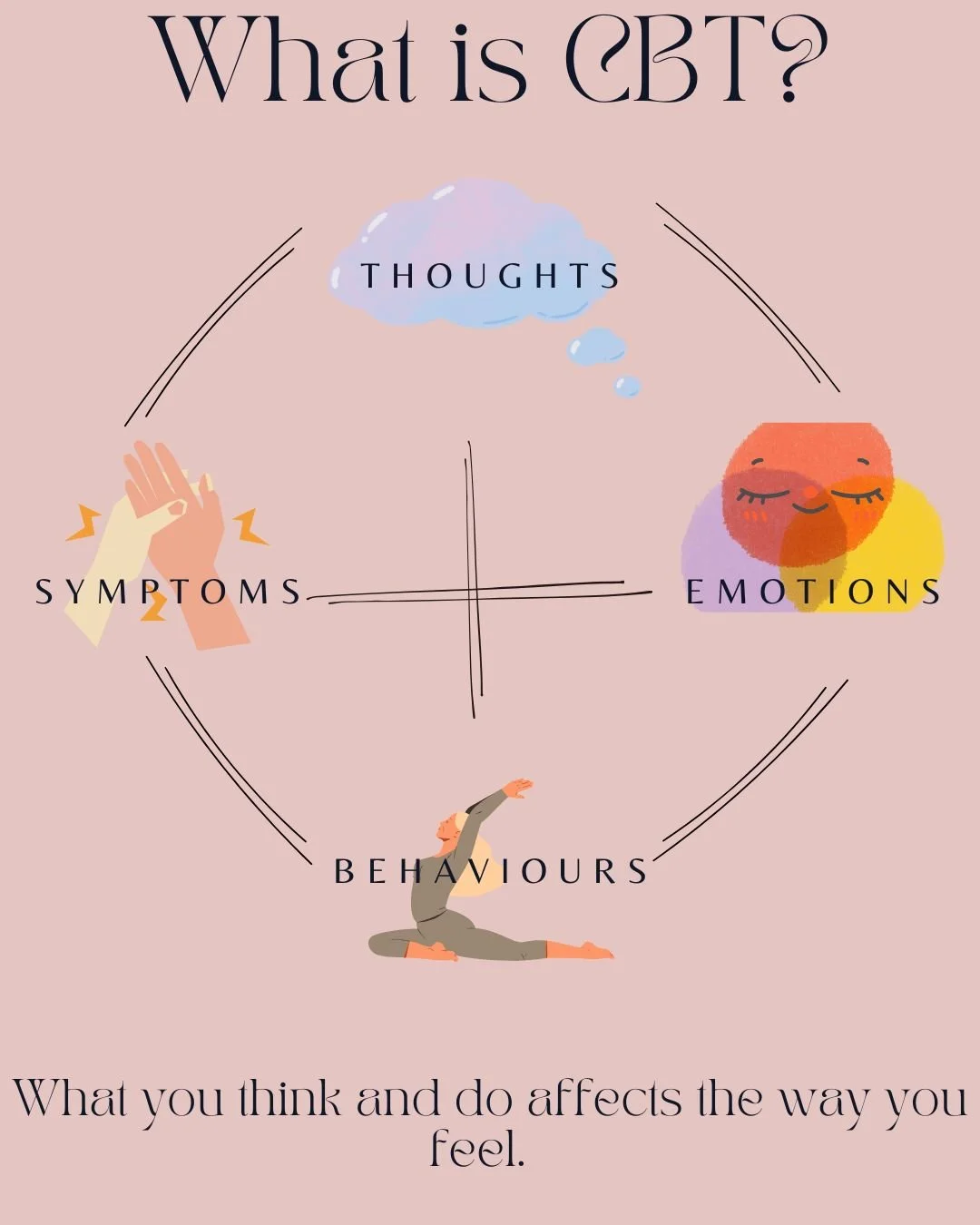What is Cognitive Behavioural Therapy?
CBT follows a structured, goal-oriented approach to therapy. CBT is evidence-based, aimed to help you understand how your thoughts, emotions, physical sensations and behaviours are all connected. These connections form what we call a ‘maintenance cycle’ – a pattern that keeps us feeling overwhelmed or stuck.
We can sometimes get caught in these cycles – relying on short-term coping strategies to try and feel better, but then unintentionally keep the problem going. Unhelpful thoughts can cause emotional distress, making it more likely that we continue those same behaviours, even when they are not serving us – creating a loop that’s hard to break on our own.
By learning to recognize and challenge unhelpful patterns, CBT empowers you to manage stress, anxiety and low mood more effectively. CBT encourages you to collaborate with your therapist to identify your therapeutic goals and is a short-term therapeutic approach designed to help you make long-lasting changes in your everyday life.
